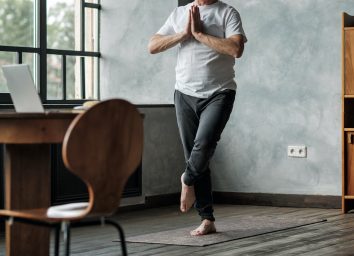Over 60? Here's a Major Red Flag You Need More Exercise, Says Study
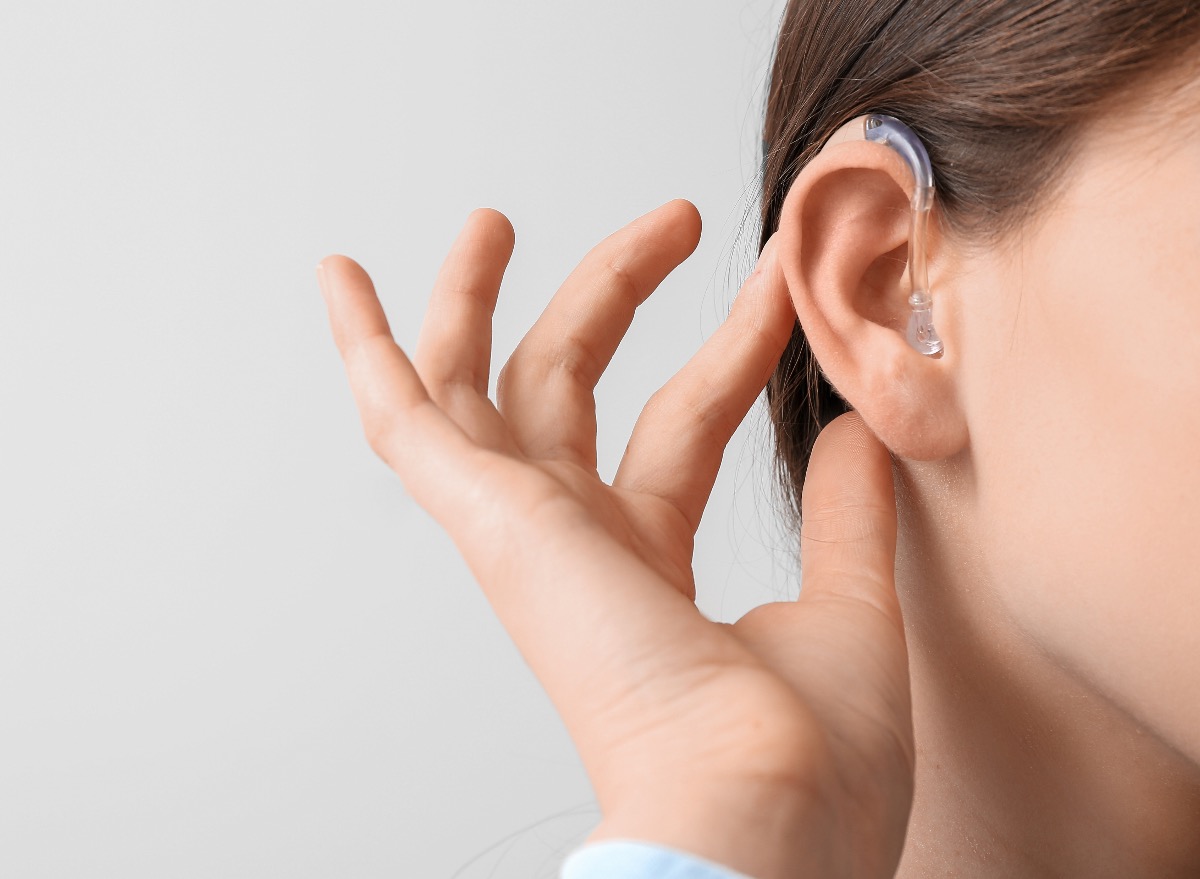
In exercise—as in most things in life—it pays to be proactive rather than reactive. After all, any reputable medical professional will tell you that good health is largely preventative. Do the right things now, and you can expect better health not only now but also later on. However, according to the CDC, only 53% of adults get enough aerobic exercise and a meager 23% meet the minimum recommended amount of both aerobic and muscle-strengthening activities.
If you're over the age of 60, it's especially important to be proactive about your exercise for the sake of your body, and it's never too late to start. "The benefits of exercise far outweigh the fear of getting started," says the Cleveland Clinic's Gary Calabrese, PT. "It increases mobility, balance, reduces chronic conditions, helps you lose weight and increases lean muscle mass. It also improves sleep."
If you're suffering from any issues related to those things, chances are you need more exercise. But according to a new study, there's yet another red flag that you may need more exercise. What's more, you may not have known that it's intricately linked to your physical fitness. Curious to know what it is? Read on for the warning sign that it's time to up your fitness game ASAP. And for some great exercises that can get you started, see here for The Best Cardio Exercises for People Over 60, Says Top Trainer.
Why Hearing Loss Shouldn't Be Ignored
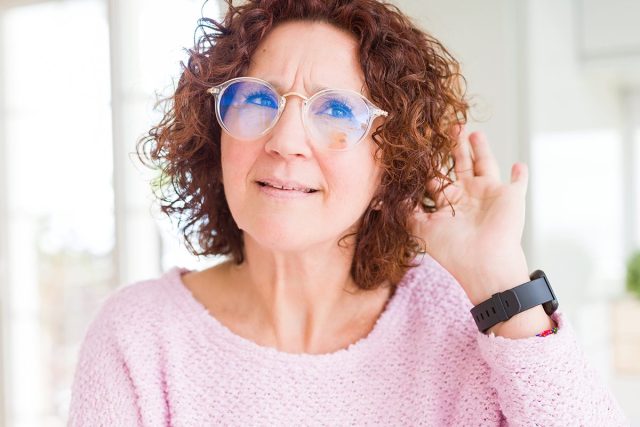
If you've noticed a decline in your hearing lately, it's a good idea to start focusing more on exercise. Specifically, you'd be wise to focus on exercises that improve your balance. According to a study published in JAMA Internal Medicine, hearing loss of just 25 decibels (considered only "mild" hearing loss) results in a three-times greater risk of suffering a fall among a group of 40-69 year olds. Moreover, each additional 10 decibel increase in hearing loss increases that risk by 1.4.
Another 2020 study released in JAMA Otolaryngology—Head & Neck Surgery, which focused on nearly 4,000 older adults living in South Korea, came to similar conclusions. Hearing loss is associated with "postural instability" (poor balance). Additionally, a comprehensive review of relevant research on this topic published in JAMA Otolaryngology—Head & Neck Surgery reports that what we hear and don't hear has a direct influence on our balance.
"Balance is complicated and involves the coordination of many different sensory inputs. When people fall, doctors typically focus on vision issues, check for neuropathy in their feet and bone issues, and fully ignore issues related to hearing. This review highlights the importance of hearing for our sense of balance," explains Maura Cosetti, MD, Associate Professor of Otolaryngology at the Icahn School of Medicine at Mount Sinai, Director of the Ear Institute at NYEE, and senior author of the later study mentioned above.
What's more, countless studies have linked balance to your overall health and longevity, noting that when your ability to balance starts to deteriorate in your 40s and 50s, it leads to a gnarly cycle that includes less exercise, weight gain, a lack of physical confidence—and all of the resulting health risks that follow. In short, it's an alarming marker of decline.
How Does Hearing Loss Put You at Risk?
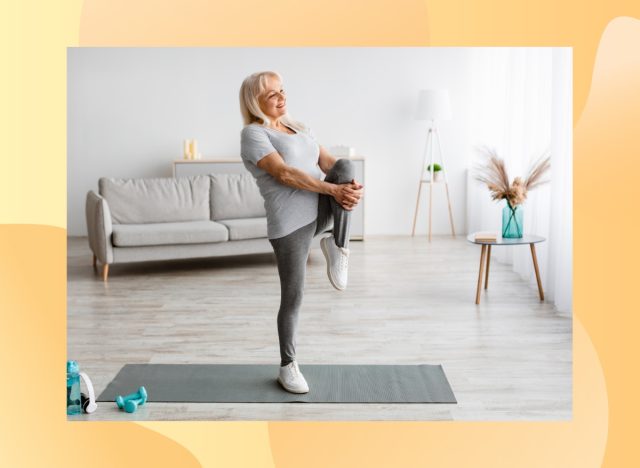
Our sense of balance starts within the ear, where the human body's vestibular system resides. That system just so happens to tell us where we are in a given environment and helps maintain balance. Furthermore, many scientists also point to "cognitive load" when speaking about the connection between poor hearing and balance.
"Gait and balance are things most people take for granted, but they are actually very cognitively demanding," explains Frank Lin, M.D., Ph.D., of Johns Hopkins. "If hearing loss imposes a cognitive load, there may be fewer cognitive resources to help with maintaining balance and gait."
The sounds around us give our minds something to sonically "grab onto" while calibrating our sense of balance. "Prior studies have shown that hearing loss is an independent risk factor for falls, even for those who were not dizzy. However, the reason why has never been completely understood, although it is believed to be related to the inner ear. This study found that the sounds we hear affect our balance by giving us important information about the environment. We use sound information to keep ourselves balanced, especially in cases where other senses—such as vision or proprioception—are compromised," Dr. Cosetti adds.
Here's How Exercise Can Help
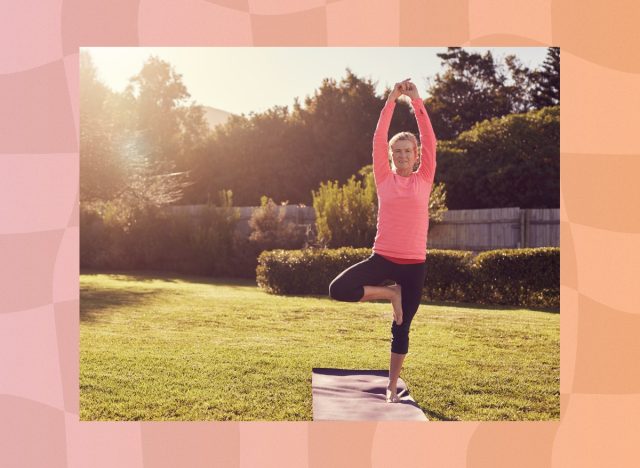
Ramping up your exercise routine and prioritizing workouts that improve balance can both reduce the risk of falls and lower the chances of suffering a major injury in the event of a fall. (You'll also gain confidence, be more active, be happier and less stressed, and likely live a longer life.) Depending on personal level of fitness and flexibility, everyone can find the right balance exercises that work for them. To begin, you can start standing on one leg more for 30 seconds at a time. You can do this while you're brushing your teeth, showering, or simply waiting for your food to cook.
Squats are great for strengthening the legs and improving balance, with lateral and sumo squats taking the cake as the best balance-building varieties. Simpler techniques include knee curls, one-legged stands, toe stands, and walking in a straight line (picture a DUI test). Additionally, activities like yoga and tai-chi can do wonders for balance. One study published in the Journal of the American Geriatrics Society found that just one hour of tai-chi one to three times per week can cut the risk of suffering a nasty fall in half.
If a fall does occur, exercise can also help better protect your bones. According to the National Institutes of Health, weight-bearing and resistance exercises are best for building bone strength. Examples include activities as simple as walking, jogging, climbing the stairs, dancing, and lifting weights.
Test Your Risk
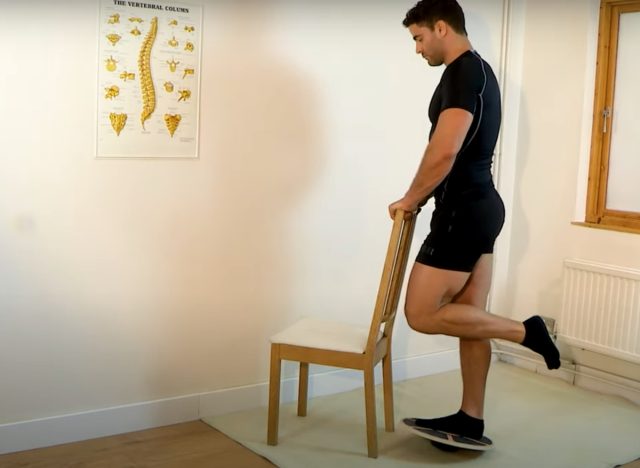
Here's a quick and easy way to assess your balance. In the previous slide, we mentioned standing on one leg—give it a try now. How long can you comfortably balance yourself? A research project published in Osteoporosis International found that for each additional second a group of older women could balance on one leg, their risk of suffering a hip fracture dropped by a full 5%. If you're having difficulty standing for long, it's time to start exercising more—and consider seeking out professional help. And for more great exercise tips, don't miss The 4 Walking Workouts That Will Help You Get Lean, Says Top Trainer.
